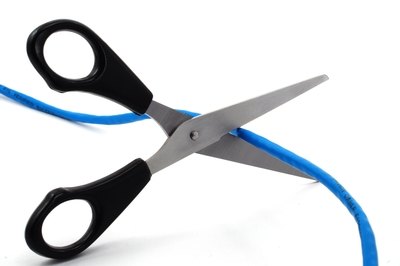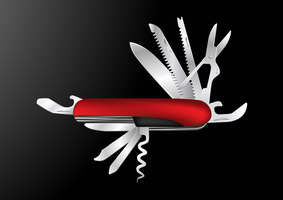Have you ever woken up completely certain that you would spend the day firing on all cylinders, knocking down your to-do list, only to find that by the end of the day you’d been spinning your wheels while the critical work remains undone?
Thomas Edison once said, “Being busy does not always mean real work. Seeming to do is not doing.” While that sounds a bit like Yoda, it is true that there are better ways to prioritize and accomplish critical tasks. Some are more unusual than others. Here are a few to get you started:
1. Slow down. You’ll get more done

Have you ever sent a response email or text so quickly that you forgot to include the important details? Part of staying on top of things is not to rush from task to task (or even rush the task you’re doing), but rather to be thoughtful and correct in your actions. You can get to this state by paying attention to what is—and is not—working, and prioritizing projects accordingly.
Try this: For a few days, take stock of what you do in a day and jot it down. What regular actions are most comfortable for you? Any obvious time-wasters? A thorough inventory of how you work and what comes most easily gives you the opportunity to become more effective. Take time to look at your practices, habits, and ideas objectively. This will help you rededicate focus where it’s needed, and move forward more productively—which actually saves you time in the end.
2. “Busy” is bad business.
Narrowly met deadlines, speedy responses to emails, racing to meetings—while you might feel like you’re accomplishing the most on the “busiest” days, the opposite is likely true.
In a recent article in Scientific American titled “Why Your Brain Needs More Downtime,” scientists discovered valid reasons to take a breather from being on. “Downtime replenishes the brain’s stores of attention and motivation, encourages productivity and creativity, and is essential to both achieve our highest levels of performance and simply form stable memories in everyday life.”
So the next time you’re tempted to work through lunch or stay up late working on the app update, remember that your work quality decreases if you’re on overdrive. Instead, prioritize downtime into your work weeks: an afternoon walk; lunch with a friend or co-worker; read a book, see a movie, take a nap, daydream. Your brain will thank you, and reward you for it.
3. Cut the cord—the perfectionist cord.

The Free Dictionary defines perfectionism as “a propensity for being displeased with anything that is not perfect or does not meet extremely high standards.” One of the most critical skills needed to prioritize effectively is being able to separate the important from the less important, and knowing when to call a task done. For perfectionists, it can be hard to let go of work because it’s never “good enough.” But being able to recognize that a task is complete and it’s time to move on is a habit worth honing. For example, if you’re toiling away on work that has a review process, and you’ll see it again for a revision, ask yourself if it’s good enough to pass one. Sometimes “good enough” is a great cutting-off point.
When everything feels critical, create a system for managing important and less important work and then try to allocate time accordingly. If you know you waste too much time on formatting your presentation slides but like things “just so,” try another tactic. Look for a colleague you can practice on, or someone to help you with your slides. (You don’t have to do everything yourself.)
4. Be honest. Learn to say “no.”
Successful, ambitious people like to be involved. This means possessing a tendency to say “yes” to being part of special projects, initiatives, you name it. Watch out for this. Being an avid yes-person can be frustrating and unproductive if you haven’t been thoughtful and analytical about your end goals. For starters, be realistic about your bandwidth. If you don’t have time, squeezing something in isn’t going to do anyone any favors.
Being honest doesn’t always mean saying “no” right away. It also means taking time to think offers through. When you do, make a list of the kinds of projects you want to be part of, and why. If you use a project management tool, see what your schedule looks like if you add the extra work. Matching up requests for your time with your strategic goals makes sense.
5. Forget multitasking.

Priorities rise to the top of the list because they are, well, priorities. That’s why it’s important to be focused, and not kid yourself that talking on the phone while answering email will lend anything to your call or your correspondence. Moving between a couple of tasks is more likely to decrease your productivity, because your brain’s attention gets taken up with switching gears, keeping you from being completely “in the zone” for either task.
Between wasting energy switching gears, losing time over thoughtless mistakes, and losing focus on priorities, multitasking is not a real win for productivity. Instead, set aside scheduled time (say, once an hour) to check email, make calls and take a break. By staying focused on one task at a time, you’ll achieve better results and use your time more effectively.
Tell us one of your favorite and oddball tricks for prioritizing work.







